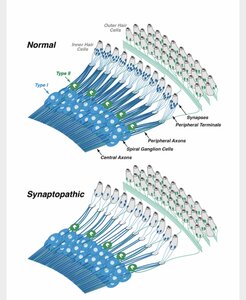Defiant-Decay
Member
- Oct 1, 2019
- 50
- 26
- Tinnitus Since
- 2019
- Cause of Tinnitus
- Loud noise/ music in headphones
the Hough Ear pill isn't something that you have to stay on. It is a temporary intervention. It is going to be fine. Stop worrying.
I uh... Wasn't worried but thanks for your concern though, and that's good because no one wants to take a pill for the rest of their life because of tinnitus.

 Member
Member Founder
Founder
